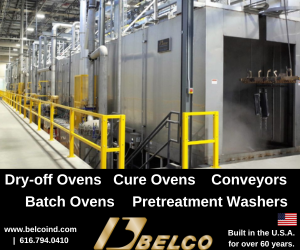HARD NICKEL
We plate sulfamate nickel on steel components to build up worn areas. Recently we have found that the nickel is very hard and almost impossible to machine properly. What might cause this problem?
Q. We plate sulfamate nickel on steel components to build up worn areas. Recently we have found that the nickel is very hard and almost impossible to machine properly.
What might cause this problem? E. W.
A. You did not mention in your e-mail what type of maintenance you perform on the sulfamate plating bath. However, I’m will to bet that you are not following a regular testing and maintenance program.
“Dirty” sulfamate baths are most often the cause of increased hardness. Both organic and metallic contamination must be kept out of the bath. Your bath must be dummyed and carbon treated on a regular basis. Platers tend not like carbon treating, but this should not be the case. Vendors that sell filtration equipment can help you set up a regular carbon filtration process.
Vendors can be found by searching www.pfonline.com/plate/index.html under Plating and Anodizing Equipment. If you are using a stress-relieving additive, be sure to use only enough to give zero stress.
Related Content
-
A Chromium Plating Overview
An overview of decorative and hard chromium electroplating processes.
-
How to Choose Between Sulfate and Chloride-Based Trivalent Chromium
There are several factors to consider when choosing between sulfate and chloride-based baths for trivalent chromium plating. Mark Schario of Columbia Chemical discusses the differences and what platers should keep in mind when evaluating options.
-
Nanotechnology Start-up Develops Gold Plating Replacement
Ag-Nano System LLC introduces a new method of electroplating based on golden silver nanoparticles aimed at replacing gold plating used in electrical circuits.














.jpg;maxWidth=300;quality=90)

